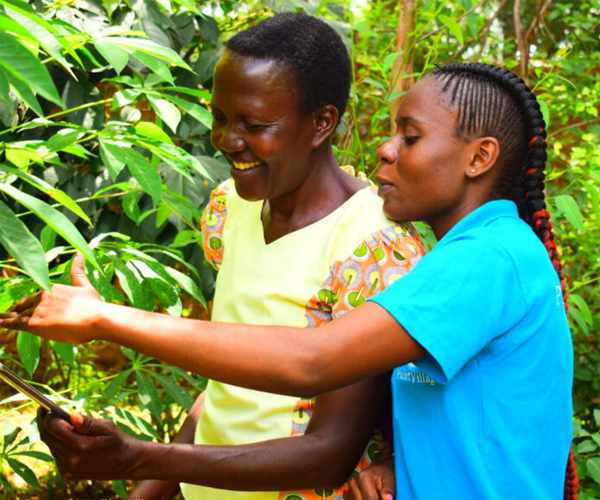Romaric Nebnoma Tiendrebeogo and other farmers in Africa are seeing significant increases in yields, thanks to new artificial intelligence tools.
Using a smartphone app, Tiendrebeogo, of Burkina Faso, can photograph an unhealthy crop and determine what pests, disease or other problems are threatening his harvest. Developed by plant village at Penn State University, the app uses AI to compare farmers’ crop photos to a database of over 100,000 plants and diseases.
PlantVillage is a U.S. Agency for International Development (USAID) Feed the Future Innovation Lab forCurrent and Emerging Threats to Crops.
The app helps farmers to grow healthy crops and make better choices about pesticides and fertilizer, benefiting their bottom lines and the environment.
Tiendrebeogo says farmers use the app for a range of crops, including cabbage, cassava, corn, onion, tomatoes, okra and citrus. A survey of roughly 100 growers who use the app reported increased yields of up to 30%.
“In Burkina Faso, where agriculture plays a central role, the adoption of this technology could not only increase agricultural productivity, but also strengthen the resilience of our food system,” said Tiendrebeogo, who trains other farmers to use the PlantVillage app.
Increasing agricultural productivity is vital in Africa, where more than 280 million people don’t have enough food. Globally, a rising population, expected to reach 10 billion by 2050, could spur a 50% increase in demand for food.
PlantVillage has distributed 53 smartphones to farmers in Malawi and trains farmers to use the app in Ethiopia, Ghana, Kenya, Mozambique, Tanzania and Uganda, as well as Burkina Faso. It also trains farmers in Honduras and Nepal to use the app.
In addition to its AI diagnostic function, PlantVillage technology provides weather forecasts to improve farmers’ decisionmaking. The research lab also has provided disease-free seeds to banana farmers.
“There are three driving problems in Africa at the moment: food insecurity, climate change and youth unemployment,” said David Hughes, who created the AI tool.
Source: US embassy in Uganda



